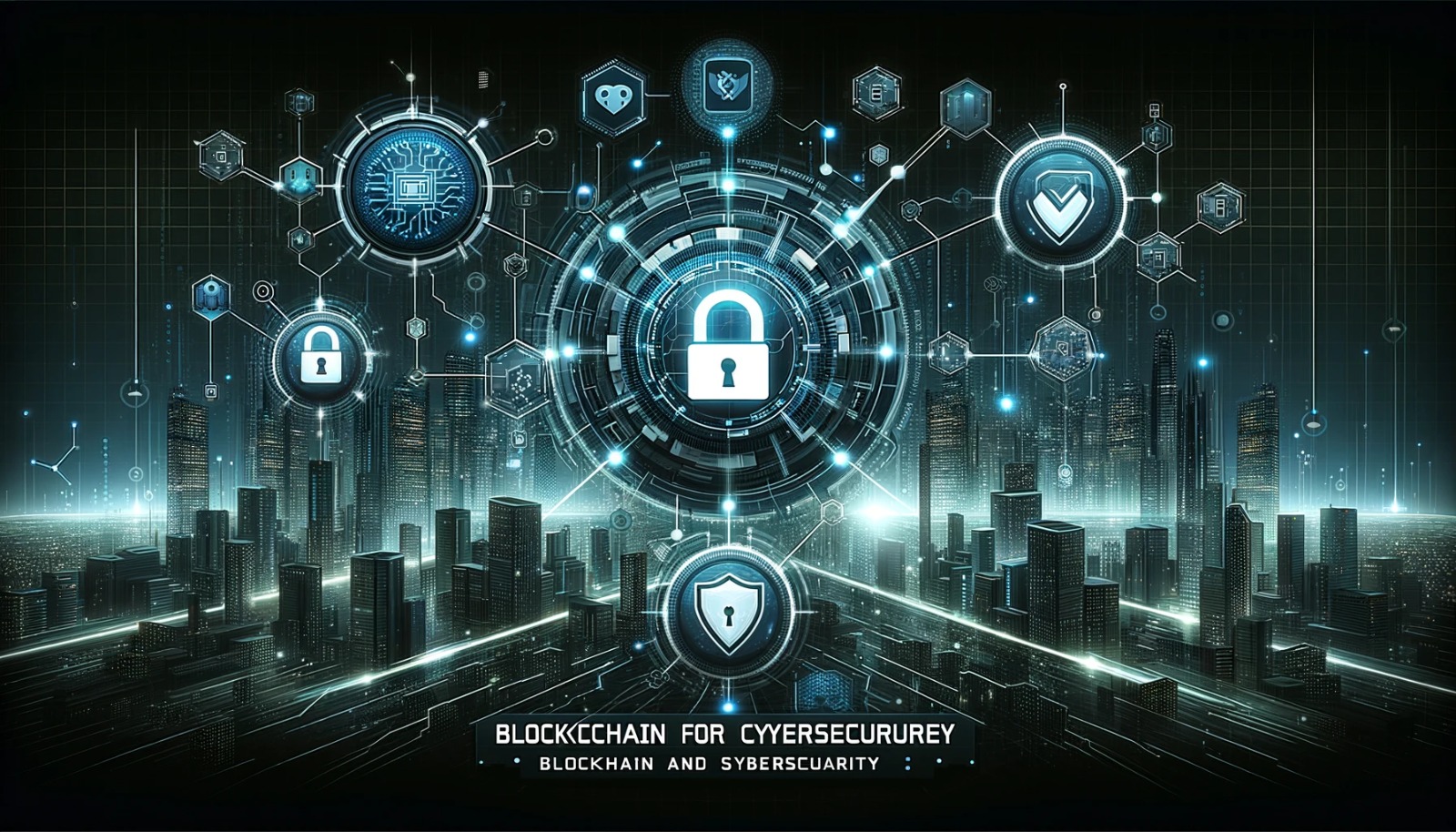
Why Digital Literacy Is as Important as Reading and Writing
Digital literacy is no longer optional—it is as essential as reading and writing in today’s world. It empowers individuals to engage, learn, work, and communicate in a digital environment. From education to employment and even social interactions, digital skills are the foundation of modern life. By promoting digital literacy, we ensure that people of all ages can participate in society, stay informed, and remain safe online. Just like traditional literacy, it is key to personal and professional
✨ Raghav Jain

Introduction
In a world that is rapidly digitizing, the ability to navigate digital environments is no longer optional—it is essential. Much like traditional literacy, which empowers individuals to read, write, and communicate, digital literacy enables people to understand and interact with technology safely and effectively.
Whether you're sending an email, attending a virtual class, verifying online information, or using a digital payment app, digital literacy is now a basic survival skill. As technology reshapes industries, communication, and education, it’s becoming clear that digital literacy holds equal weight to reading and writing in the modern world. In this article, we’ll explore why digital literacy is so important, what it entails, and how to develop it for personal and professional success. In today’s fast-paced, interconnected world, digital literacy has become just as essential as the traditional skills of reading and writing, if not more so. As we navigate through the 21st century, the ability to effectively use digital tools and platforms is no longer a luxury but a necessity for participation in modern society. Just as reading and writing enable individuals to comprehend and communicate ideas through text, digital literacy empowers people to access, evaluate, create, and share information in a variety of digital formats. This includes understanding how to use search engines efficiently, discerning credible sources from misinformation, participating in digital communication platforms, and safeguarding one’s privacy and digital identity. In an age where the internet is a primary source of news, education, employment opportunities, healthcare information, and social connection, lacking digital literacy can leave individuals isolated, misinformed, and vulnerable. For students, digital literacy is a cornerstone of academic success, allowing them to conduct research, collaborate on projects, and present their work in creative ways. For professionals, it is indispensable in nearly every industry, as more jobs require the ability to use software, manage data, and communicate virtually. Even in daily life, tasks like online banking, booking appointments, or accessing government services often demand digital competency. Moreover, digital literacy goes beyond mere technical know-how; it also involves understanding the ethical implications of online behavior, respecting others in digital spaces, and contributing positively to the digital world. The rise of artificial intelligence, machine learning, and big data further highlights the urgency of digital fluency, as these technologies influence the way we work, think, and interact. Without digital literacy, individuals may struggle to keep up with these transformations and may be excluded from critical conversations and decisions that shape society. Additionally, digital literacy fosters critical thinking and creativity, enabling individuals to not only consume content but also produce and innovate within the digital space. It plays a crucial role in civic engagement, where understanding online platforms can amplify voices, mobilize communities, and promote social change. In essence, digital literacy is a gateway to lifelong learning and empowerment. It equips people with the skills needed to question, analyze, and participate in the digital narrative rather than passively consuming it. Furthermore, digital literacy helps combat the digital divide, a socio-economic gap that separates those who have access to digital tools and the skills to use them effectively from those who do not. Bridging this divide is essential for achieving equity in education, employment, and civic life. Governments, educators, and organizations around the world are increasingly recognizing this and integrating digital literacy into curricula and public programs. The pandemic underscored the importance of digital skills as schools moved online, businesses shifted to remote work, and essential services were delivered digitally. Those without digital literacy faced significant disadvantages, underscoring that digital exclusion can have real, tangible consequences. Therefore, promoting digital literacy is not only about equipping individuals with technical skills but also about fostering inclusive growth and ensuring that everyone has the opportunity to participate fully in the digital age. As we continue to advance technologically, digital literacy will only grow in importance. It is the new language of connection, collaboration, and comprehension in a digitally dominated world. Just as reading and writing once opened doors to new worlds, digital literacy now opens portals to a universe of possibilities. It is through digital fluency that individuals can truly harness the power of the internet, engage meaningfully with information, and contribute to shaping a more informed, inclusive, and innovative society. Thus, in a world where information is power and the digital space is the new public square, digital literacy must be considered a fundamental skill—on par with, if not surpassing, the traditional pillars of education. Without it, the promise of equal opportunity, empowerment, and progress in the modern age remains unfulfilled.
What Is Digital Literacy?
Digital literacy is more than just knowing how to use a computer or smartphone. It’s the ability to find, evaluate, use, and create information using digital technology. It includes critical thinking, media literacy, cybersecurity awareness, and understanding how digital tools function in everyday contexts.
Components of Digital Literacy
- Technical skills – Using devices, apps, and online platforms
- Information literacy – Searching, analyzing, and validating online content
- Communication skills – Using digital tools to interact and collaborate
- Cyber safety – Protecting personal data and navigating risks responsibly
- Creativity and productivity – Creating content and solving problems digitally
Just like reading and writing empower us to engage with the world, digital literacy equips us to thrive in the digital age.
Education and Learning: The New Classroom
Today’s education system relies heavily on digital tools. From online classes and e-learning platforms to virtual labs and assignments, digital literacy is essential for students and educators alike.
Why Students Need Digital Literacy
- To access educational content online
- To participate in virtual classrooms
- To complete digital assignments and research
- To understand plagiarism, citation, and ethical content use
Teachers too must adapt, integrating multimedia, educational apps, and online discussions to create engaging, inclusive learning environments.
Benefits
- Prepares students for digital workplaces
- Enhances independent learning and research
- Encourages creativity through digital projects and collaboration
Without digital literacy, even a well-read student may struggle in a tech-based learning environment.
Workplace Relevance: A Core Job Skill
In nearly every industry—from marketing and healthcare to logistics and finance—digital tools are part of daily operations. Employers now look for digital literacy as a foundational skill, just like communication or problem-solving.
Digital Literacy in the Workplace
- Using productivity tools (Google Workspace, Microsoft Office)
- Managing emails, cloud storage, and task management apps
- Understanding data privacy and basic cybersecurity protocols
- Navigating digital platforms like CRMs, ERPs, or collaborative tools
Whether you're a cashier using POS software or a CEO managing cloud reports, being digitally literate boosts your efficiency and employability.
Benefits
- Increases job readiness and versatility
- Opens doors to remote and hybrid work
- Supports lifelong learning and skill development
Without digital literacy, professionals risk falling behind in competitive and tech-driven industries.
Critical Thinking and Media Literacy: Fighting Misinformation
One major aspect of digital literacy is learning how to assess online information. With the rise of fake news, AI-generated content, and manipulated visuals, it's more important than ever to be able to distinguish fact from fiction.
Key Media Literacy Skills
- Verifying sources and checking for bias
- Understanding how algorithms influence the content we see
- Being aware of echo chambers and filter bubbles
- Recognizing deepfakes, scams, and misinformation
In a digital world overflowing with information, the ability to think critically and question content is essential—just like understanding a book's theme or identifying unreliable narrators in a story.
Benefits
- Promotes responsible online behavior
- Reduces the spread of harmful misinformation
- Enhances informed decision-making
Being literate means being informed—and in today’s world, that includes digital awareness.
Digital Citizenship and Ethics: Being Responsible Online
Just as reading and writing come with responsibilities—like respecting others’ words or using language constructively—so does digital participation. Digital literacy includes understanding the rules, rights, and responsibilities of online behavior.
What Digital Citizenship Includes
- Respecting digital etiquette and community guidelines
- Understanding intellectual property and copyright laws
- Knowing how to report abuse, bullying, or scams online
- Being mindful of what you post and share
From social media posts to online forums, your digital footprint matters. Digital literacy teaches you how to leave a positive impact while protecting your own well-being.
Benefits
- Builds respectful online communities
- Protects users from cyberbullying and online threats
- Encourages empathy and constructive dialogue
Without digital ethics, technology can be misused, leading to real-world harm and misunderstanding.
Accessibility and Inclusion: Bridging the Digital Divide
In the same way that traditional literacy enables participation in society, digital literacy ensures inclusion in the modern world. Yet, millions of people still lack access to digital tools or the skills to use them effectively.
Who’s at Risk of Digital Exclusion?
- Seniors who didn’t grow up with technology
- Rural populations with limited internet access
- Low-income families who can’t afford devices
- People with disabilities facing accessibility barriers
Bridging this gap through education and infrastructure is crucial for social equity.
Benefits of Inclusive Digital Literacy
- Empowers underserved communities
- Boosts education and job opportunities
- Promotes digital democracy and participation
Making digital literacy universal is as important as making books and education accessible to all.
Life Skills: Everyday Uses of Digital Literacy
Beyond work or school, digital literacy is crucial for everyday life. It helps you manage your finances, maintain social connections, access healthcare, and even express yourself creatively.
Everyday Examples
- Using digital maps and ride-hailing apps
- Booking doctor appointments online
- Managing digital wallets and bank accounts
- Sharing creative content like art, music, or blogs
These daily tasks rely on a basic understanding of how to interact with digital platforms.
Benefits
- Makes life more convenient and efficient
- Encourages self-expression and entrepreneurship
- Supports health, safety, and well-being
In many ways, not knowing how to navigate digital spaces today is similar to not knowing how to read a signpost in the past.
Teaching Digital Literacy: A Collective Responsibility
Just like we teach reading and writing from early school years, digital literacy must be taught in a structured, age-appropriate way.
How to Foster Digital Literacy
- Schools should include it in the curriculum from a young age
- Parents should guide safe and mindful digital use
- Communities should provide access and workshops for all age groups
Even employers and government bodies have a role to play by offering digital upskilling programs and policies that support lifelong learning.
Benefits of a Digitally Literate Society
- Increases innovation and economic growth
- Fosters informed and engaged citizens
- Reduces digital inequality and fosters inclusion
When everyone is equipped with digital skills, society as a whole moves forward.
Conclusion
In the 21st century, digital literacy is as important as reading and writing. It enables individuals to learn, work, connect, and thrive in an increasingly digital world. From decoding online content and using virtual tools to protecting privacy and promoting respectful digital engagement, digital literacy is the foundation for modern survival and success.
Ignoring it can lead to exclusion, misinformation, and lost opportunities. But embracing it opens the door to empowerment, inclusion, and growth. As we move deeper into the digital era, let’s ensure that no one is left behind—not because they can’t read, but because they can’t connect.
Just like teaching the alphabet once changed the world, teaching digital literacy can shape the future. Start small, stay curious, and remember: the more digitally literate we are, the more powerfully we can write our own stories.
Q&A Section
1. What is digital literacy?
Ans:- Digital literacy refers to the ability to effectively and responsibly use digital tools, platforms, and technologies. It includes skills like using the internet, understanding digital content, evaluating online information, and communicating through digital means.
2. Why is digital literacy considered essential in today's world?
Ans:- In today’s technology-driven world, digital literacy is crucial for education, employment, and daily communication. It enables individuals to navigate the digital landscape, access important resources, and participate fully in modern society.
3. How does digital literacy compare to traditional literacy?
Ans:- Traditional literacy focuses on reading and writing, while digital literacy extends those skills into the digital realm. Both are essential, but digital literacy prepares individuals to engage with the tools and content that dominate the 21st century.
4. What role does digital literacy play in education?
Ans:- Digital literacy empowers students to research, collaborate, and submit work online. It enhances learning through access to e-books, virtual classrooms, and interactive educational tools, making education more engaging and accessible.
5. How does digital literacy affect employability?
Ans:- Many jobs require basic to advanced digital skills, from using spreadsheets to managing social media. Being digitally literate increases one’s chances of employment and career growth in a technology-centric workforce.
6. Can digital literacy help combat misinformation?
Ans:- Yes, digital literacy helps individuals critically evaluate online content, distinguish credible sources, and avoid falling for fake news or scams, promoting a more informed and responsible digital society.
7. How does digital literacy support lifelong learning?
Ans:- With access to online courses, tutorials, and learning platforms, digitally literate individuals can continuously update their skills and knowledge, staying relevant in a fast-changing world.
8. Is digital literacy important for older generations too?
Ans:- Absolutely. Digital literacy helps older adults stay connected with family, access healthcare services online, manage finances, and enjoy digital entertainment, improving their quality of life.
9. What are the risks of lacking digital literacy?
Ans:- Without digital literacy, individuals may struggle to access information, become more vulnerable to online fraud, face difficulties in school or work, and be left behind in a digitally advancing world.
10. How can digital literacy be promoted in society?
Ans:- Schools, communities, and governments can promote digital literacy by offering training programs, ensuring access to digital tools, and integrating digital skills into education from an early age.
Similar Articles
Find more relatable content in similar Articles

AI in Drug Discovery: Faster C..
Artificial Intelligence is rev.. Read More

Wearable Health Sensors: The D..
Wearable health sensors are re.. Read More

How Blockchain Is Reinventing ..
Blockchain is transforming cyb.. Read More

Solar-Powered Wearables: Can T..
Solar-powered wearables are re.. Read More
Explore Other Categories
Explore many different categories of articles ranging from Gadgets to Security
Smart Devices, Gear & Innovations
Discover in-depth reviews, hands-on experiences, and expert insights on the newest gadgets—from smartphones to smartwatches, headphones, wearables, and everything in between. Stay ahead with the latest in tech gear
Apps That Power Your World
Explore essential mobile and desktop applications across all platforms. From productivity boosters to creative tools, we cover updates, recommendations, and how-tos to make your digital life easier and more efficient.
Tomorrow's Technology, Today's Insights
Dive into the world of emerging technologies, AI breakthroughs, space tech, robotics, and innovations shaping the future. Stay informed on what's next in the evolution of science and technology.
Protecting You in a Digital Age
Learn how to secure your data, protect your privacy, and understand the latest in online threats. We break down complex cybersecurity topics into practical advice for everyday users and professionals alike.
© 2025 Copyrights by rTechnology. All Rights Reserved.